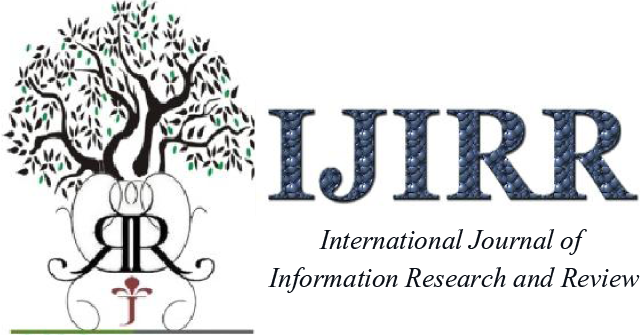Short Communication
Volume 2 Issue 2 - 2017
Tooth loss-Is it a Disability or Neglect? Indian Perspective
MDS, MA, LLB, Associate Professor,Department of Conservative Dentistry and Endodontics,Government Dental College and Hospital, Mumbai St. Georges Hospital Compound, P.D’Mello Road, Fort, Mumbai -400001, India
*Corresponding Author: Manoj Ramugade, Associate Professor in Department of Conservative Dentistry and Endodontics, Government Dental College and Hospital, Mumbai, India.
Received: December 14, 2017; Published: December 19, 2017
Presence of natural and healthy teeth are the real asset to an individual's health. Teeth not only improve the mastication and digestion but also play a vital role in self beautification of the person. Importance of good teeth usually highlighted in their absence rather than in their health. In the past access to health and oral health in particular was limited due to unavailability of basic health resources. Conversely in the present society of modernization with increased oral health awareness people could easily take the help of oral health professionals for their dental problems.
Loss of tooth structure and thus the tooth due to caries, trauma or by other reasons affect the oral as well as general health. It could be rightly emphasize that, every loss of tooth structure leads to damage of general physical health. But still oral hygiene has become the last priority especially in uneducated and people from low socioeconomic strata. Unawareness and lack of wealth usually tend these people devoid of basic health care facilities and lead to degraded quality of life. Quality of life has been defined by World Health Organization (WHO) as “an individual’s perception of their position in life in the context of the culture and value systems in which they live and in relation to their goals, expectations, standards and concerns.” [1]
In underdeveloped and developing countries like India, loss of tooth structure or tooth itself has not been considered as true disability unless it affects the person in mastication, disturbing his routine life or causing disfigurement. It can be rightly said that every lost tooth is a lost organ but scenario changes according to various demographic areas. In developed countries oral health has given equal importance as to the general health and considered it as an integral part of body. Population explosion, poverty, lack of education or lack of basic living facilities are the major problems of underdeveloped countries. Thus oral health would never become the priority for such people and they neglect their routine oral hygiene, leading to loss of their teeth. Even after loss of teeth replacement of missing teeth would not be considered as a routine practice till loss of chewing function or esthetics.
Effects of tooth structure or tooth loss [2]:
- Loss of facial esthetics
- Indigestion and malnourishment
- Improper phonetics
- Loss of vertical dimension
- Lack of self-confidence and self- esteem
Primary role of teeth is to help in chewing of food and formation of food bolus. Loss of teeth can cause improper chewing and lead
to indigestion which in turn results in malnutrition. Oral cavity is considered as a pathway to the good health. In the present society of
health consciousness, teeth do not limit their role in mastication but also enhances the beauty of the individual. Healthy smile has been
considered as mirror to good health and personality. Teeth also helps in pronunciation of words clearly. In their absence the speech
would alter. Similarly loss of teeth in early ages of life results in lack of confidence and self-esteem especially in community activities.
Though all advantages of teeth are well recognized their absence would not alter routine life in economically backward strata of community.
[3,4]
The identified reasons for the mentioned effects of lost tooth are anxiety and fear, ignorance, neglect, time constraint and poor economic conditions. Out of these anxiety and neglect are most common and could be correlated with procedures involved in dental treatment. In dental procedures requiring local anesthesia patient is usually apprehensive to injection to be given in mouth. As a natural response to any pain patient often closes his eyes and turns the face so that he doesn’t have to face the pain. Previous bad experience of pain during dental procedures also add on to the fear about dentist and this triggers the neglect to the dental treatment and ignorance to the oral health.
Role of teeth now is not only limited to the mastication purpose but it also enhances the overall physical appearance of the person. It also improves psychological status and confidence of individual especially in children and teenage patients, as loss of tooth at this age not only cause malnutrition but leads to low self-esteem. [5,6] Even if loss of tooth structure is partial or complete it affects the tender minds of children and of teenage as well.
In India with increasing oral health awareness, the overall scenario is now changing and people became more aware about their oral health and disease. The State Government of Maharashtra has started "Swachh Mukh Abhiyan" (Oral Health Mission) which have extended their oral health services to the patients of remote villages and distant areas by organizing free dental treatment camps for poor people through expert team of dental professionals. This not only accelerates oral health awareness among masses but also provide optimum and quality health services to poor and improves oral health of every needy person. Increasing oral health awareness among the common man and initiatives taken by Government through their humanly approached health policies would assure the better oral health for every strata of society in present and near future of India.
Conclusion
It could be concluded that, teeth should be given the same importance as other part of the body. Loss of teeth have a direct correlation with poor oral and general health as well as quality of life. It not only affects general chewing capability and digestion but also creates a negative psychological impact on an individual. Anxiety and ignorance are the main causes for tooth loss and dental disability. Proper patient counselling, guidance and knowledge would help to avoid the anxiety and ignorance and would eventually lead to better oral health.
References
- “Study protocol for the World Health Organization project to develop a quality of life assessment instrument (WHOQOL).” Quality of Life Research 2.2 (1993):153-159.
- Holm-Pedersen P., et al. “Tooth Loss and Subsequent Disability and Mortality in Old Age”. Journal of the American Geriatrics Society 56.3 (2008): 429-435.
- Gerritsen AE., et al. “Tooth loss and oral health-related quality of life: A systematic review and meta-analysis”. Health and Quality of Life Outcomes 8 (2010): 126.
- Hsu KJ., et al. “Relationship between remaining teeth and self-rated chewing ability among population aged 45 years or older in Kaohsiung City, Taiwan”. Kaohsiung Journal of Medical Sciences 27.10 (2011): 457-465.
- Saintrain MV and de Souza EH. “Impact of tooth loss on the quality of life”. Gerodontology 29.2 (2012): e632-636.
- Bortoluzzi MC., et al. “Tooth loss, chewing ability and quality of life”. Contemporary Clinical Dentistry 17.2 (2012): 393-397.
Citation:
Manoj Ramugade. “Tooth loss-Is it a Disability or Neglect? Indian Perspective”. Oral Health and Dentistry 2.2 (2017): 369-
371.
Copyright: © 2017 Manoj Ramugade. This is an open-access article distributed under the terms of the Creative Commons Attribution License, which permits unrestricted use, distribution, and reproduction in any medium, provided the original author and source are credited.



































 Scientia Ricerca is licensed and content of this site is available under a Creative Commons Attribution 4.0 International License.
Scientia Ricerca is licensed and content of this site is available under a Creative Commons Attribution 4.0 International License.